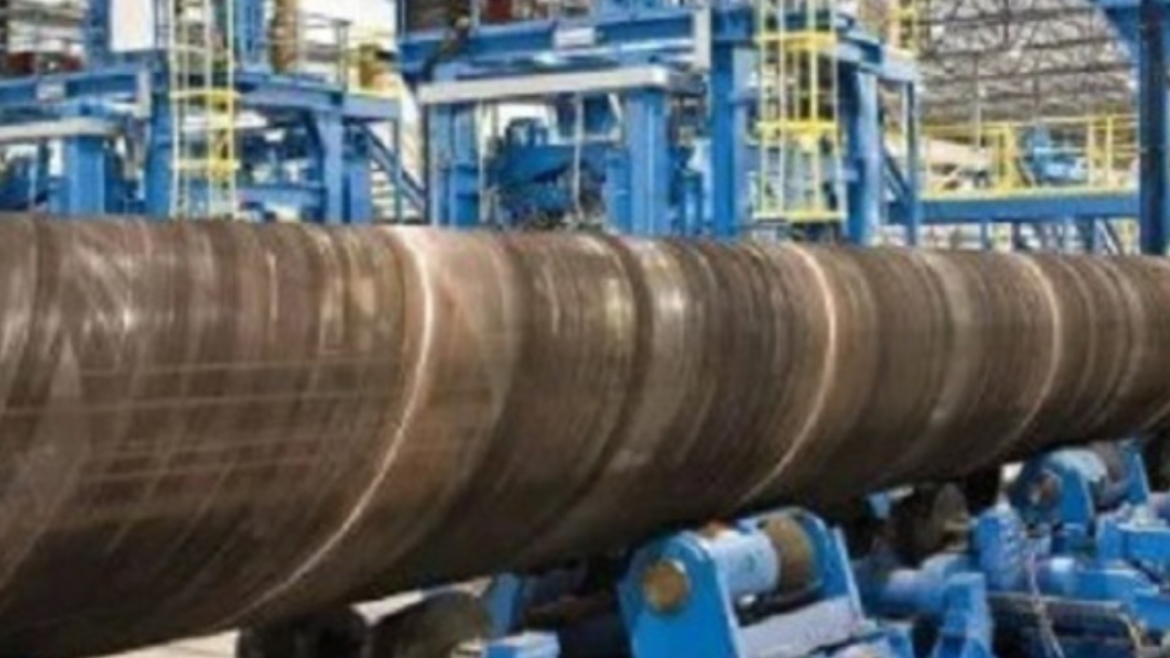Electric Resistance Welded (ERW) pipes are a critical component in a wide range of industrial applications, prized for their low cost, efficiency, and versatility. This welding technology uses high-frequency electrical currents to create a strong seam, which distinguishes ERW pipes from other welded pipes. These pipes are suitable for a wide range of applications, including oil and gas transportation and structural building.
ERW pipes are classified into several varieties, each of which is designed for a unique application. ERW pipes meet strict tolerances and find uses in industries like aerospace that value precision. Coated erw welded pipe are subjected to additional protection measures, including the use of corrosion-resistant compounds such as epoxy or polyethylene. The versatility of ERW pipes makes them important in a variety of industries, representing dependability, efficiency, and flexibility.
Different Types of ERW Welded Pipe
Electric Resistance Welded (ERW) pipes are essential components in a variety of sectors because of their low cost, efficiency, and versatility. They are widely employed in a variety of applications, including oil and gas pipelines and structural and building projects. Considering the various varieties of ERW welded pipes is critical for picking the appropriate product for specific needs. This article looks into the many classifications and characteristics of ERW pipes, providing an in-depth analysis.
Standard ERW Pipes
Standard ERW pipes are the backbone of many industrial applications, according to recognized standards such as API 5L for oil and gas and ASTM A53 for general usage. These pipes are available in a variety of grades, sizes, and requirements, ensuring reliability and efficiency. Whether in oil pipelines or structural construction, conventional ERW pipes are adaptable components that fulfill industry standards for easy integration.
Line Pipes
Line pipes, a form of ERW welded pipe, are essential for transferring oil, gas, and other fluids. They are available in a variety of grades customized to specific energy sector requirements and meet demanding standards such as API 5L. These pipes serve an important role in the safe and efficient transportation of fluids, meeting the oil and gas industry’s stringent demands.
Structural Pipes
Structural pipes, a subset of ERW welded pipes, are intended for use in construction and infrastructure projects. These pipes are designed to endure loads and pressures while providing critical support in construction. Structural pipes come in a variety of sizes and thicknesses and maintain structural integrity in applications such as bridges and buildings. Their adaptability makes them indispensable components in the construction sector.
Water Pipes
Water pipes, an important type of ERW welded pipe, are specifically developed for the safe and efficient transfer of potable water. These pipes, which adhere to standards such as ASTM A53, are critical components of water supply systems. Water pipes, which are frequently galvanized for increased corrosion resistance, ensure the lifetime and dependability of water distribution networks, contributing to communities’ critical infrastructure.
Automotive Pipes
Automotive pipes, a specialized type of ERW welded pipe, are integral components in the manufacturing of automotive systems. These pipes, crafted from specialized materials, contribute to exhaust systems, frames, and various automotive components. Their precise manufacturing and reliability make them essential for the automotive sector, meeting the demanding requirements of precision and performance in various applications.
Galvanized Pipes
Galvanized pipes, a separate type of ERW welded pipe, are coated with zinc to provide a protective layer. This coating improves corrosion resistance, making them ideal for outdoor and severe situations. Galvanized ERW pipes are used for fencing, handrails, and water distribution systems because they are durable and resistant to rust and corrosion.
Precision Pipes
Precision pipes, a specialized variant of ERW welded pipes, are manufactured with tight tolerances, ensuring high accuracy in dimensions and consistency. Ideal for applications requiring precise measurements and minimal deviation, these pipes find use in industries like aerospace, where exact specifications are critical. Precision ERW pipes contribute to the manufacturing of components where precision is paramount.
Sum Up
Knowing the various types of ERW welded pipes is critical for making educated selections in many industries. Each kind is designed for a specific purpose and meets high safety, reliability, and performance standards. Whether in oil and gas exploration, structural construction, or water supply systems, ERW pipes remain a versatile and dependable option for a wide range of industrial applications.

